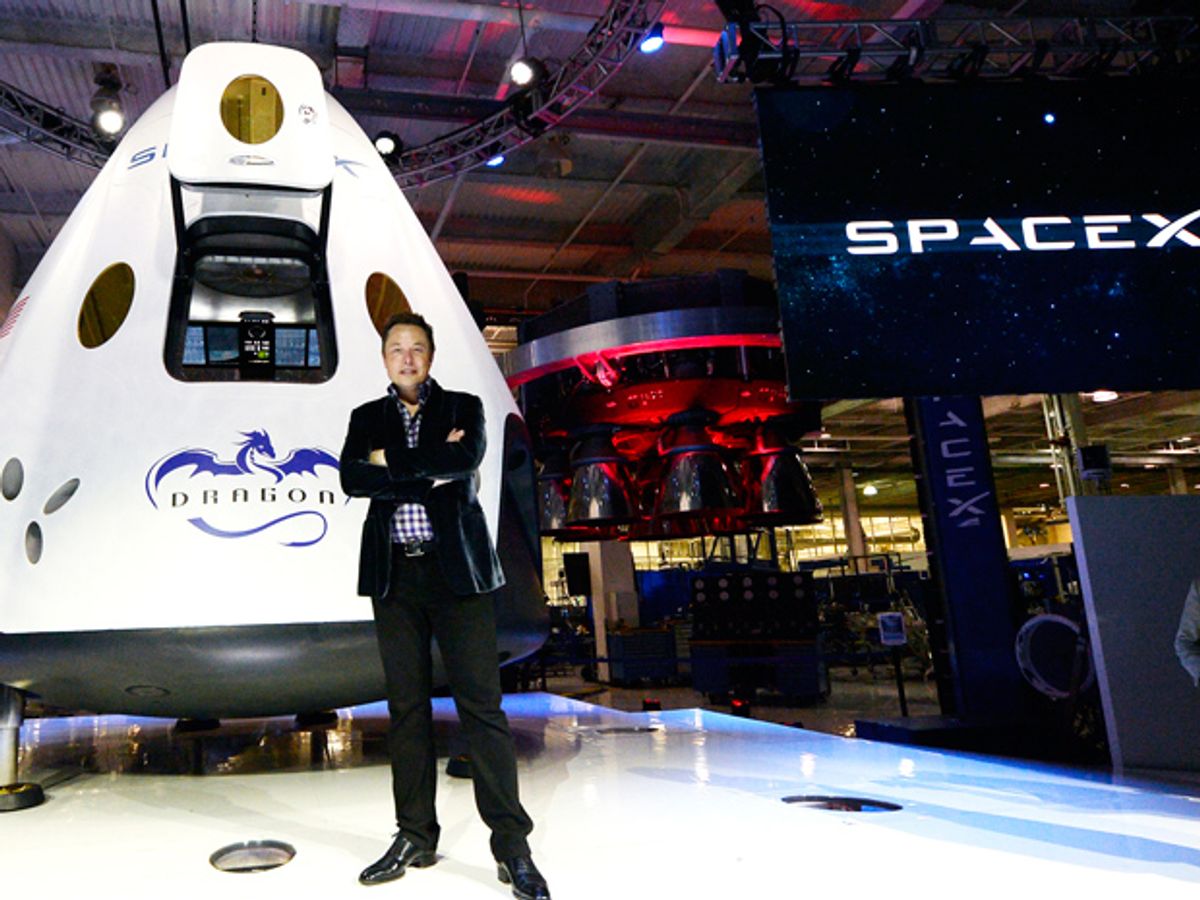SpaceX recently announced plans to provide Internet access through a global network of about 4,000 satellites starting within five years. The private spaceflight company also revealed that it has raised $1 billion in funding from Google and Fidelity to help make those plans a reality.
The mega investment in SpaceX will give Google and Fidelity ownership of about 10 percent of the spaceflight company, according to a SpaceX press release on 20 Jan. A Wall Street Journal report cited a person close to the deal as saying the investment would aid SpaceX’s plans to expand Internet access through its global satellite network:
The investment would value SpaceX, backed by Tesla Motors Inc. Chief Executive Elon Musk, at more than $10 billion, according to a person familiar with the matter. The financing will support the company’s nascent plans to deliver Internet access via satellites, the person said.
The company has already submitted paperwork to international regulators for approval to launch the global satellite network in low-Earth orbit, said Elon Musk, founder and CEO of SpaceX, during an invitation-only announcement on 16 January, according to SpaceNews. Musk also confirmed plans to build a new SpaceX satellite factory in Seattle.
SpaceX’s satellite Internet project dovetails nicely with Google’s ambitions to spread Internet access worldwide through platforms such as balloons, drones, and satellites. Tech giants such as Google and Facebook have been considering a wide array of possible plans for expanding their reach to the world’s untapped market of future Internet users.
SpaceX had previously been in talks with Greg Wyler, a former Google executive and founder of WorldVu Satellites Ltd., about building a joint satellite Internet effort. But the Wall Street Journal says that the talks between SpaceX and Wyler floundered over disagreement about control of the possible joint project. Wyler has apparently gone his own way, leaving SpaceX and Google looking more like allies rather than rivals in the race to spread Internet access.
Musk said that the satellite venture represents a better money-making opportunity for SpaceX compared with its space-launch services. Until now, the spaceflight company has based its business on its fleet of Falcon rockets that launch commercial satellites into orbit and deliver cargo to the International Space Station under a NASA commercial contract.
The potential revenue from the satellite Internet project could help SpaceX move toward Musk’s dream of sending humans to colonize Mars. He made that point very clear during the announcement of the project plans, according to SpaceNews:
This is intended to be a significant amount of revenue and to help fund a city on Mars. Looking at the long term, what’s needed to create a city on Mars? Well, one thing’s for sure—a lot of money. So we need things that will generate a lot of money.
But any investors excited about getting a piece of the SpaceX future may have to wait until SpaceX is “doing regular flights to Mars” before they can expect an IPO, Musk said. He pointed out that the company’s long-term goals of establishing a human settlement on Mars don’t fit well with the short-term expectations of public shareholders.
Jeremy Hsu has been working as a science and technology journalist in New York City since 2008. He has written on subjects as diverse as supercomputing and wearable electronics for IEEE Spectrum. When he’s not trying to wrap his head around the latest quantum computing news for Spectrum, he also contributes to a variety of publications such as Scientific American, Discover, Popular Science, and others. He is a graduate of New York University’s Science, Health & Environmental Reporting Program.



